Life
Sign up for our newsletter
We summarize the week's scientific breakthroughs every Thursday.
-
 Life
LifeVagina bacteria make molecules that could be drugs
Microbes on the human body are capable of producing thousands of small molecules that hold potential as drugs.
-
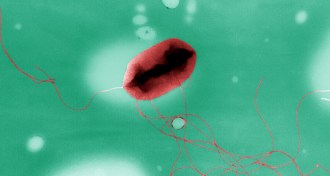 Microbes
MicrobesVaccines and gut microbes join forces to fight flu
Losing gut microbes weakens the protective ability of the flu vaccine in mice.
By Nsikan Akpan -
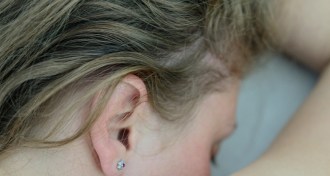 Neuroscience
NeuroscienceOur brains sort words as we sleep
Even after nodding off, a person’s brain correctly sorts words into categories, adding to the achievements of the sleeping brain.
-
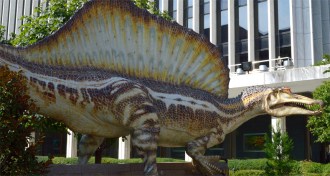 Paleontology
PaleontologyLost-and-found dinosaur thrived in water
Fossils pieced together through ridiculous luck reveal Spinosaurus to be the only known dinosaur adapted for regular ventures into water.
By Susan Milius -
 Life
LifeSuperslow sloths may have once evolved superfast
Sloths may evolved some of the fastest rates of body growth reported to date for mammals.
-
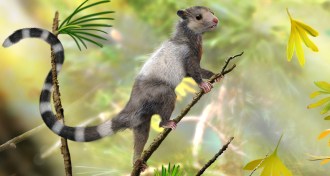 Paleontology
PaleontologyFossils push back origins of modern mammals
Fossils of three newly identified early mammals from China suggest that the common ancestor of today’s mammals lived over 200 million years ago.
By Meghan Rosen -
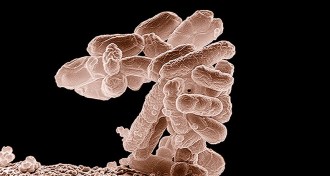 Microbes
MicrobesSpeedy test could improve treatment of urinary tract infections
A new test for drug-resistant bacteria may speed the diagnosis and treatment of urinary tract infections.
By Nsikan Akpan -
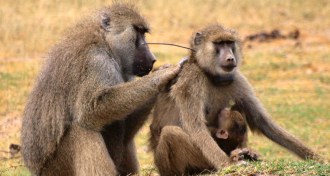 Animals
AnimalsStrong social bonds help lady baboons live longer
Wild, female baboons with stronger social connections with both female and male baboons live longer than females with weaker ties, a new study shows.
-
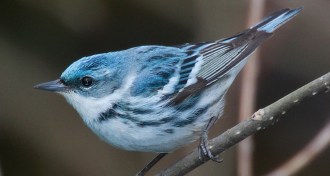 Life
LifeNorth American bird update finds a little good news
Conservation measures have succeeded in improving the plight of certain North American bird species, but overall the national report card says “needs improvement.”
By Susan Milius -
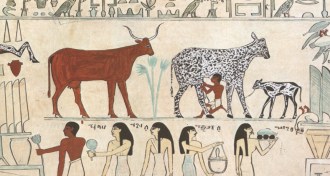 Ecosystems
EcosystemsArtifacts, fossils tell story of changes to Egypt’s animals
Ancient Egyptian artifacts and fossils from the Nile Valley show a correlation between species extinctions and a growing human population in a drying climate.
-
 Health & Medicine
Health & MedicineViruses can zoom through workplaces in hours
A virus on an office door handle can spread to more than half the people working there within a few hours.
By Nathan Seppa -
 Plants
PlantsHelping trees adapt to climate change possible but a huge task
A new study finds that it would be possible to assist the migration of trees and help them adapt to climate change, but the scale of such a project would be massive.